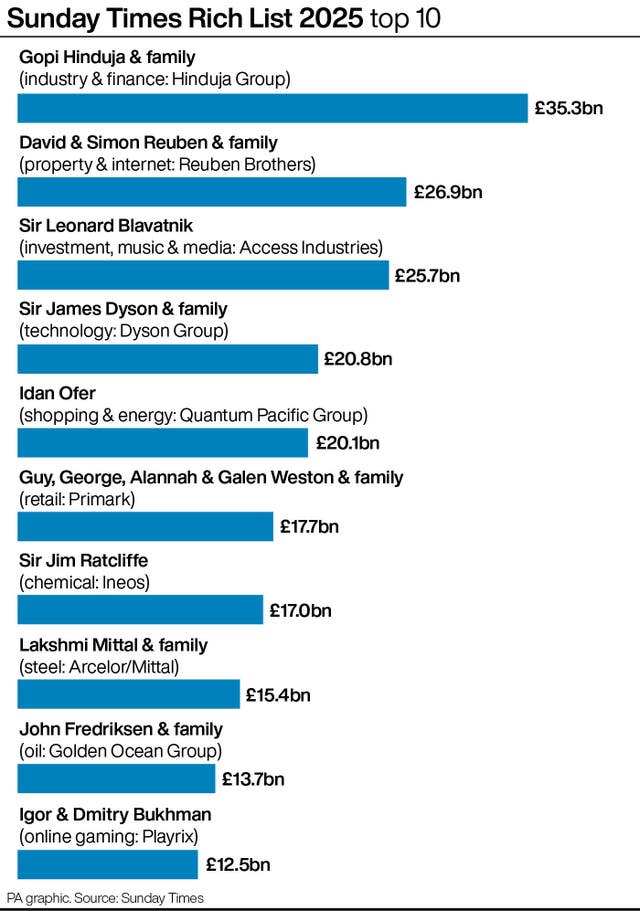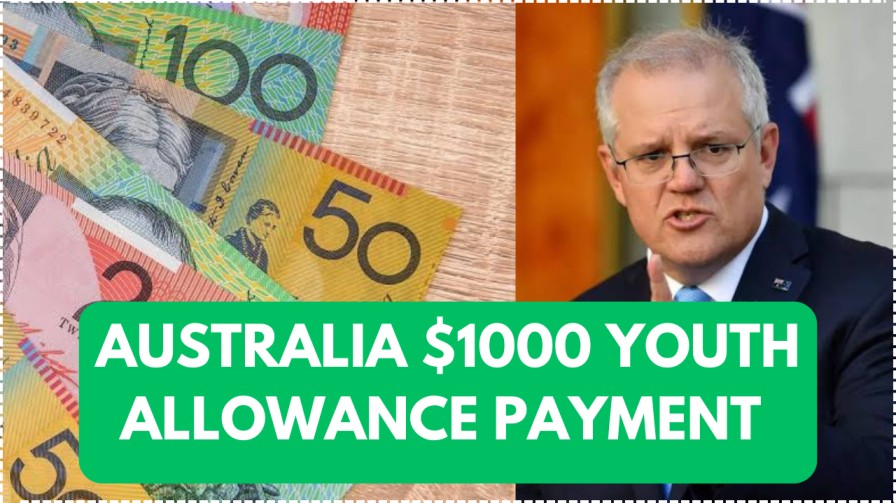UK’s Richest in 2025: Familiar Faces, Shifting Fortunes –
So, the latest Sunday Times Rich List came out, and well, the UK’s richest folks are mostly sticking around despite some shifts in the economy. It’s interesting because even though the overall number of billionaires has dropped, a lot of the usual big names haven’t budged too much.
For the fourth year running, the Hinduja family is still sitting pretty at the top. That said, their fortune did dip a bit—from about £37.2 billion down to £35.3 billion. Not a huge drop, but enough to notice. Gopi Hinduja and his family run this massive conglomerate out of Mumbai called the Hinduja Group. They’re everywhere—banking, media, energy—with a workforce of around 200,000 people worldwide. It’s kind of wild when you think about how much that empire spans.
But yeah, there’s this ongoing trend where the number of billionaires in the UK is shrinking. From 165 last year to 156 now, marking the third year in a row of decline. I suppose that’s tied up with some political shifts—the new Labour government has come under fire for certain policies that some say are pushing the ultra-rich out or making it harder to stay wealthy here. It’s not completely clear-cut though; maybe some are just riding the market waves or diversifying elsewhere.
Other familiar faces like Sir James Dyson and Sir Jim Ratcliffe remain in the top tier. Dyson’s story is kind of neat—he’s the inventor who gave us the cyclone bagless vacuum cleaner back in the 70s and has since moved into beauty tech with his hair tools. I remember reading that he owns over 36,000 acres of farmland here, and this year, he spoke out against some tax changes, particularly around inheritance rules for farms. So, he’s not just about gadgets but quite involved in farming too.
Jim Ratcliffe, on the other hand, is better known as the founder of Ineos and co-owner of Manchester United. His wealth has taken a pretty big hit, dropping by about £6.5 billion since last year. Fans have criticized some of his financial decisions at the club, especially job cuts, which makes his place on the list feel a bit complicated. He’s slipped down a few ranks this year, which is notable since he’s been at the top before.
Here’s a quick peek at some of the richest families and individuals, just to get a feel for who’s who:
- The Reuben brothers, David and Simon, are next up with a £26.87 billion fortune, mostly made from property and tech investments.
- Then there’s Sir Leonard Blavatnik, a Ukrainian-born British-American who built his fortune partly through Russian ventures and took Warner Music public in 2020.
- Idan Ofer, from the Israeli shipping dynasty, comes in with interests in shipping, energy, and about a 30% stake in Atletico Madrid.
- The Weston family’s wealth is mostly from retail, like Primark and sugar production through Associated British Foods. Their fortune rose by over £3 billion this year, which caught my attention—retail must still be doing something right despite all the talk about online shopping disrupting everything.
And the list goes on, including folks like Lakshmi Mittal, the steel magnate, and some newer names like the Bukhman brothers, who nearly doubled their fortune thanks to mobile games like Gardenscapes.
Something I found quite interesting is the Duke of Westminster, Hugh Grosvenor, who inherited a massive estate and became an instant billionaire at just 34. Plus, he’s godfather to Prince George, which adds a bit of royal flair to the mix.
What struck me, honestly, is how many of these fortunes come from a mix of inheritance and innovation. Some families have been building wealth for generations, like the Rausings with their Tetra Pak legacy. Others are newer billionaires, riding trends in tech and entertainment.
Still, with all this wealth, the list feels a bit like a snapshot in flux. The economy isn’t static, and neither is who’s on top. New industries might shake things up, or policies might push some to look elsewhere. It’s a little unpredictable, which is probably why these lists are both fascinating and, in a way, a bit unreliable as a long-term guide.
Anyway, that’s the roundup of the UK’s wealthiest in 2025. It’s a mix of old money, new money, some controversies, and some stability — all wrapped up in numbers that can feel both staggering and a little abstract.

1. The Hinduja Family
They’ve been at the very top for a while now, which is impressive given how many billionaires come and go. The Hinduja Group is this sprawling conglomerate that’s sort of hard to pin down because it’s involved in so many industries—banking, energy, media, you name it. I guess that kind of diversity helps them weather economic ups and downs. Still, their wealth slipping from £37.2 billion to £35.3 billion suggests they’re not completely immune. Maybe global market shifts or political uncertainties are squeezing them a bit.
What’s fascinating to me is how quietly powerful they are. They don’t really grab headlines compared to some flashy billionaires, but their empire’s massive. And with 200,000 employees worldwide, it’s like they’re running a small country.
2. David and Simon Reuben
These brothers have an interesting story too. Born in Mumbai, raised in the UK, and made a fortune in property and tech investments. Their private equity firm, Reuben Brothers, is behind a lot of real estate deals you might not even realize are theirs.
I always find it curious how real estate remains such a steady way to build and hold wealth, especially in a place like London where property prices are notoriously high. But also, it’s a double-edged sword—property markets can be volatile, as we’ve seen recently with all the economic shifts.
3. Sir Leonard Blavatnik
He’s a real globetrotter. Born in Ukraine, holding British and American citizenship, with a fortune built partly through Russian ventures. And then there’s Warner Music, which he took public in 2020. That’s a clever move, given how the music industry’s changed so much over the last decade.
I think people often underestimate how media and entertainment businesses can be goldmines, especially if you own the right assets. Blavatnik’s mix of industrial and entertainment investments makes his profile stand out.
4. Sir James Dyson
A classic inventor story. Dyson’s vacuum cleaner invention was a game-changer, and his move into beauty tech—those hair dryers and stylers—shows he’s got a knack for spotting new markets. I actually have one of his hair dryers, and, honestly, it’s pretty impressive.
But beyond gadgets, Dyson’s big landowner status is interesting. Over 36,000 acres? That’s almost hard to picture unless you’ve been to the countryside. His vocal stance on tax policies, especially inheritance tax for farms, shows how these billionaires are pretty plugged into political debates, especially when it hits their interests.
5. Sir Jim Ratcliffe
Ratcliffe’s story feels a bit more complicated. Ineos, his chemicals company, is huge and global, but his involvement with Manchester United has been controversial, to say the least. The financial decisions, like cutting jobs, haven’t gone down well with fans.
It’s a reminder that wealth and public image don’t always align. Even billionaires have to deal with public opinion, especially when their money intersects with beloved institutions like football clubs.
6. The Bukhman Brothers
These two are the newer kids on the block who’ve almost doubled their fortune thanks to mobile games like Gardenscapes and Fishdom. It’s kind of crazy how much money gaming generates now—far beyond what most people expect.
I wonder if their rise signals a shift toward more digital wealth creation in the UK. Maybe this is the start of a new wave of billionaires built on tech and entertainment rather than traditional industries like steel or property.
7. The Duke of Westminster, Hugh Grosvenor
Hugh’s an interesting figure because he inherited his title and wealth at a young age—just 34—and instantly became one of the richest people under 40 in the country. Plus, the royal connection as Prince George’s godfather adds a bit of celebrity gloss.
It’s a bit of a different kind of wealth—rooted in land and historic estates—but it still holds serious financial power. I imagine managing such an estate today must be a balancing act between tradition and modern business pressures.





